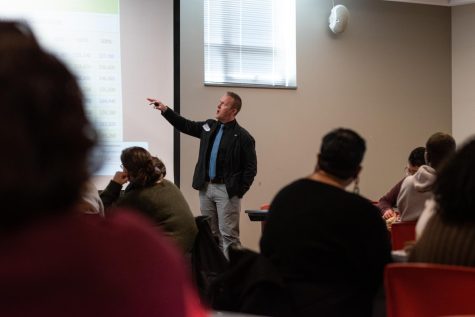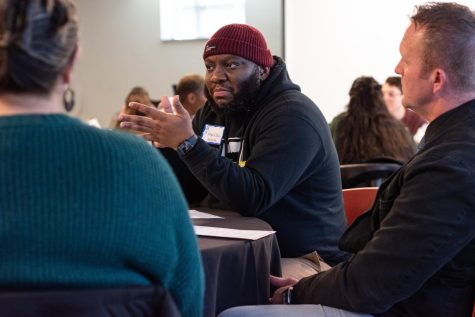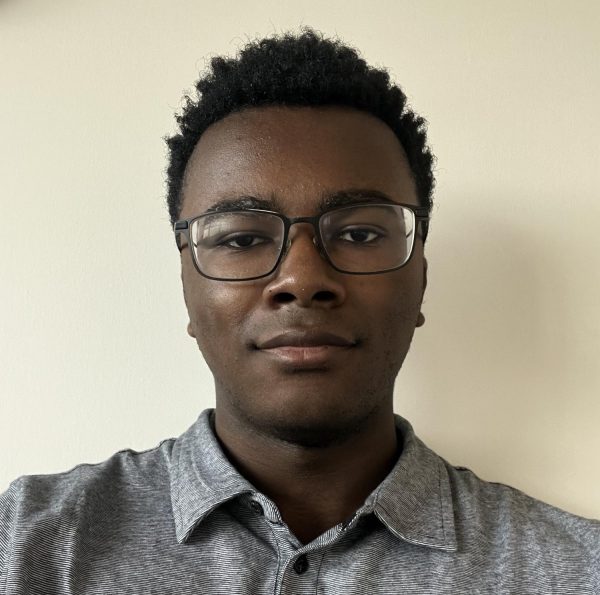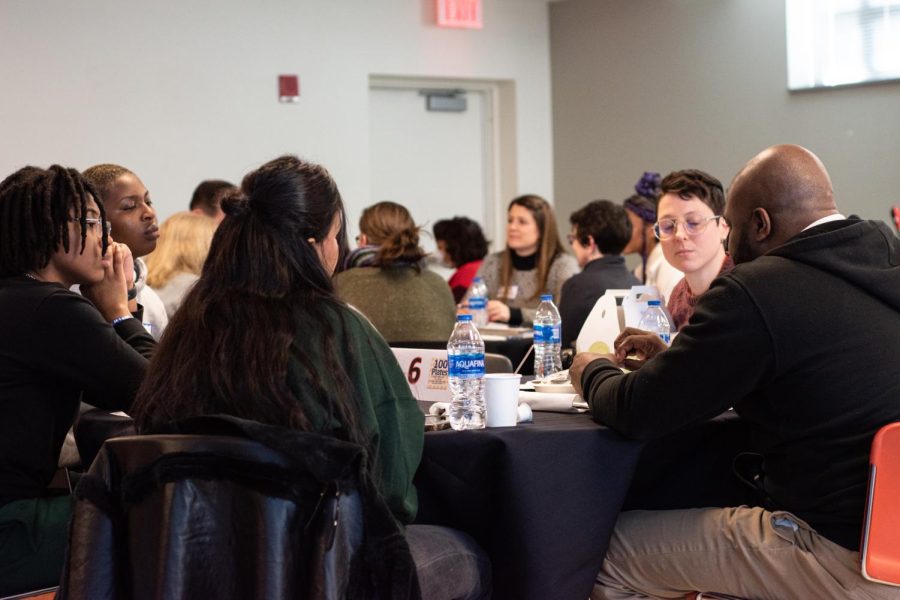100 Plates event celebrates MLK Week with lunch and group discussion
Attendees sit at tables spread across the room to discuss how to best help students in need following the initial presentation during the 100 plates community lunch on Feb. 1, 2023.
The MLK commemorative committee celebrated Martin Luther King Jr.’s mission to achieve a “beloved community” with a lunch and discussion.
“He believed there were three barriers to achieving a beloved community,” said Shana Lee, assistant dean of students and director of parents and families engagement. Lee also serves as the diversity, equity and inclusion co-chair for the MLK commemorative committee.
She explained those three barriers were poverty, racism and militarism. The event focused on the poverty barrier for students.
Lee expressed the importance of coming together and “breaking bread” at the dinner table in the African-American community and how it symbolizes togetherness and unity.
“The first step in empowering the people and continuing progress toward an accepting and inclusive culture is to bring all silenced voices to the table to identify and define the challenges they face,” Lee said. “The 100 plates format provides the platform in which to do so.”
CARES Center director Joshua Perkins facilitated the conversation. He informed the audience on how many students struggle to meet their four basic needs while at Kent State: housing, food, finances and mental well-being.

“Three in five college students experience some sort of basic need insecurity,” Perkins said. Maslow’s hierarchy of needs says food, water, air and shelter are considered the basic needs. “It isn’t enough to have those four basic needs,” he said. “Just being alive is considered a basic need; how minimal is that?”
The CARES Center provides students with on and off-campus resources to help them overcome their basic needs and insecurities to succeed academically.
“Food insecurity and homelessness is an issue really close to my heart,” Kalena Speicher, a sophomore political science major, said. “I admire Dr. King and all he’s done.”
After the presentation, members were able to move into breakout groups to discuss what poverty means to them and how it can be overcome.
“Continue to donate and expand on the employee resources on campus,” said Nzinga Hart, academic program coordinator for graduate students. Expanding the employee resources allows the staff and faculty members to connect with one another and become a better resource for students, she said.

Attendee and faculty member Julie Vandegrift told the same group, “You can have all of the money in the world, but what are you actually doing with the resources?”
Marquis Davis, the project coordinator for the office of diversity, equity, and inclusion and member of the MLK commemorative committee, expressed his thoughts to the group, “Poverty can be a state of being, or it can be where you are, and if our state of mind isn’t rich, we can continue that cycle of poverty.”
Davis also expressed the importance of staff sitting down to talk to students and have genuine conversations to show the students that they care about them beyond their academic success.
“Starts with events like this to create that community, it’s knowing that you belong here, no matter where you come from we got you,” Perkins said.
Chania Crawford is a reporter. Contact her at [email protected].

Matthew is a senior photography major and The Kent Stater's visuals editor. He has a passion for photography and traveling.
Contact him at [email protected].



